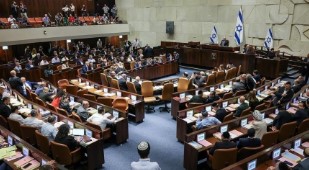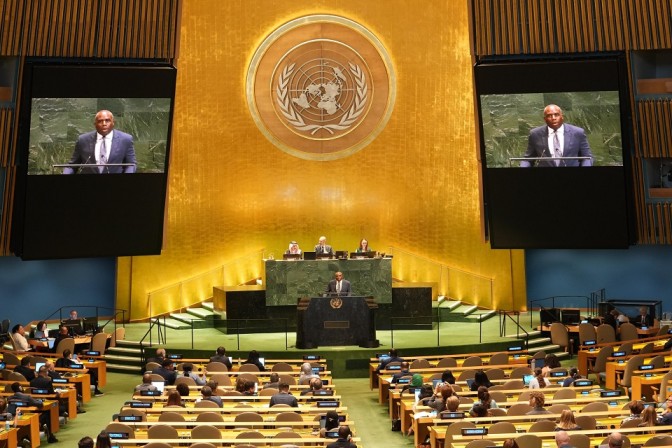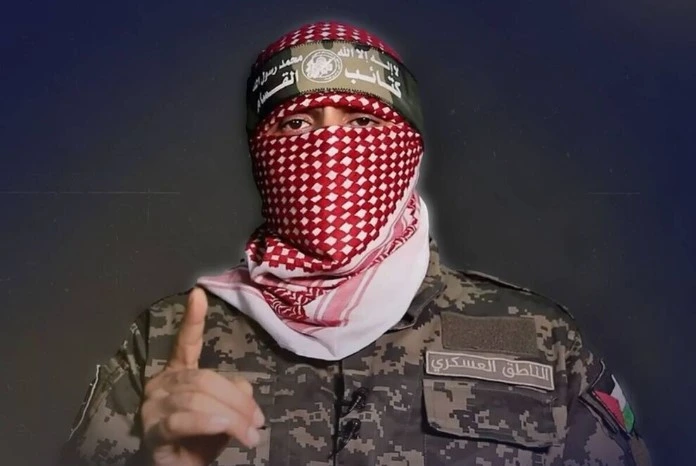
Israel’s Security Cabinet to Approve Gaza Ceasefire and Hostage Release Deal
- World News
- January 17, 2025
- No Comment
Israel’s Security Cabinet to Approve Gaza Ceasefire and Hostage Release Deal
Israel’s security cabinet is set to convene on Friday to approve a ceasefire agreement and a hostage release deal with Hamas, expected to take effect this weekend. If implemented, the deal would temporarily halt hostilities in Gaza and secure the release of numerous hostages captured during Hamas’s attack on Israel on October 7, 2023.
The agreement, brokered by Qatar, the United States, and Egypt, aims to end more than a year of intense warfare between Israel and Hamas. As part of the deal, Israel will release hundreds of Palestinian prisoners from its jails in exchange for the return of Israeli hostages held in Gaza.
The truce is scheduled to begin on Sunday, aligning with the inauguration of Donald Trump as the President of the United States. The temporary pause in hostilities is expected to allow humanitarian aid to flow into Gaza while reducing civilian casualties on both sides.
Ahead of the ceasefire, Israeli airstrikes have continued, with Gaza’s rescue teams reporting dozens of deaths and widespread destruction. The Israeli military confirmed targeting approximately 50 locations across the enclave over the past 24 hours.
In Gaza, displaced residents are preparing to return to their homes. One evacuee, Nasr al-Gharabli, who fled Gaza City, expressed his eagerness to return, saying:
I will go back to kiss my land. Leaving my home was painful, and if I must die, I would rather die there than live as a displaced person.”*
In Israel, emotions are mixed. While families rejoice over the expected return of hostages, they also grieve for those who have died. Tel Aviv resident Simon Patya described his feelings as *“great joy”* for those returning alive but *“great sorrow for those who are returning in bags.”*
Despite the progress, tensions remain high. Israeli Prime Minister Benjamin Netanyahu’s office accused Hamas of attempting to alter the terms of the agreement at the last minute, which Hamas denied. However, early Friday, Netanyahu confirmed that a final agreement had been reached and would be presented for government approval.
U.S. Secretary of State Antony Blinken, whose government played a significant role in brokering the deal, expressed confidence that the ceasefire would proceed as planned. He stated:
*”I am confident, and I fully expect that implementation will begin on Sunday.”*
However, Hamas’s armed wing, the Ezzedine al-Qassam Brigades, warned that ongoing Israeli airstrikes could jeopardize the agreement and endanger the lives of hostages still in captivity.
The war, which began on October 7, 2023, after Hamas launched a surprise attack on Israel, has resulted in severe casualties. The attack killed 1,210 Israelis, mostly civilians, and led to the capture of 251 hostages, according to Israeli reports. Israel estimates that 94 hostages remain in Gaza, with at least 34 believed to be dead.
Israel’s military response has led to unprecedented destruction in Gaza. According to the Hamas-run health ministry, the conflict has killed 46,788 Palestinians, mostly civilians, a figure that the United Nations considers reliable. The humanitarian situation in Gaza remains dire, with hospitals, schools, and critical infrastructure in ruins.
The ceasefire deal follows months of failed negotiations and escalating violence. Both Trump and Biden’s administrations have played a role in pushing the agreement forward. Trump claimed credit for securing the deal.
The agreement’s first phase includes the release of 33 hostages, among them women, children, elderly individuals, and those in critical medical condition. Israeli forces are expected to withdraw from Gaza’s most densely populated areas, allowing displaced Palestinians to return home.
President Biden suggested that this deal could lay the groundwork for a *“permanent end to the war”* and emphasized that the agreement would facilitate the delivery of much-needed humanitarian aid to Gaza.
Egyptian President Abdel Fattah al-Sisi also welcomed the ceasefire and proposed an international conference to discuss Gaza’s reconstruction. The United Nations estimates that it will take more than a decade to rebuild the territory’s civilian infrastructure.
The World Health Organization (WHO) reported that at least $10 billion would be needed to restore Gaza’s healthcare system alone, which has been decimated by the ongoing war.
Meanwhile, G7 leaders hailed the agreement as a *“significant development”* and urged both Israel and Hamas to ensure full compliance.
As the world watches closely, the upcoming ceasefire represents a crucial turning point in the ongoing conflict. While the truce offers a temporary reprieve, the long-term resolution of hostilities remains uncertain. The coming days will determine whether the ceasefire holds and whether it can pave the way for a lasting peace agreement between Israel and Hamas.







